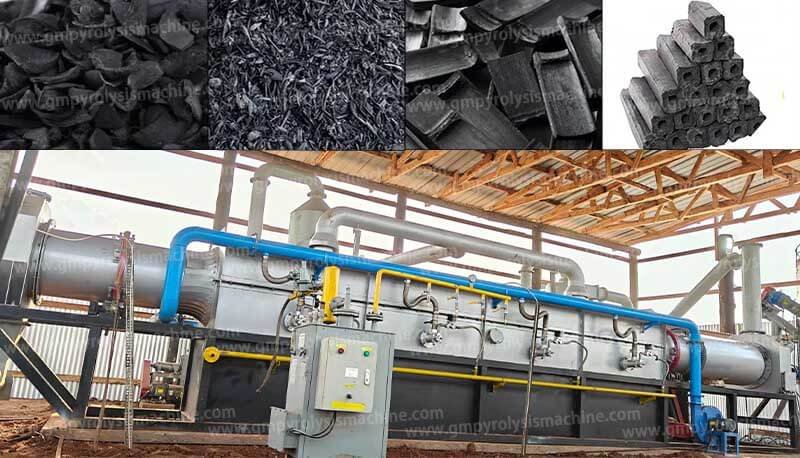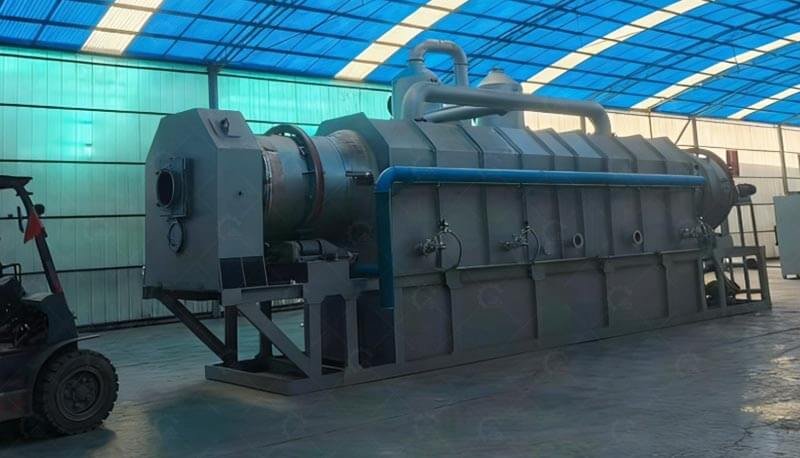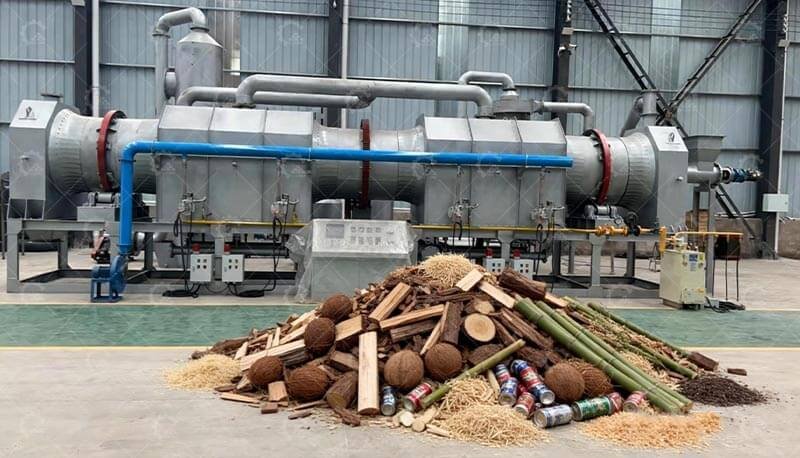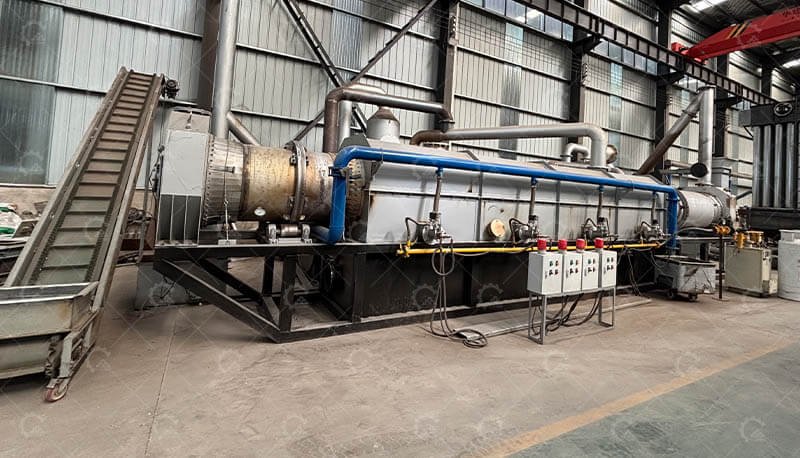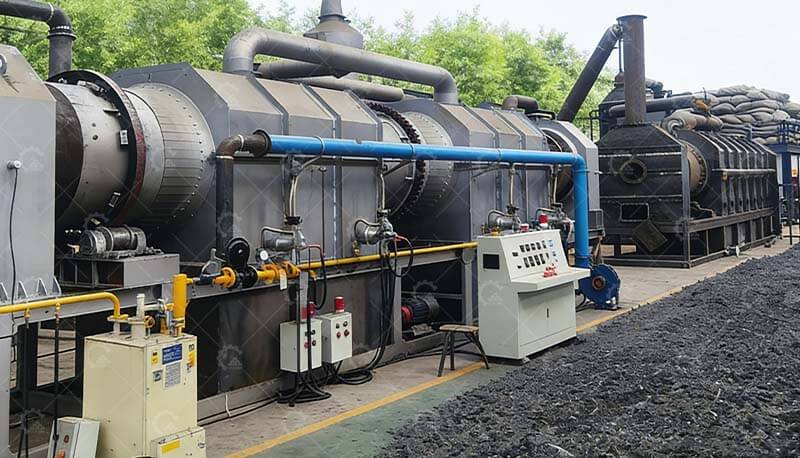Understanding Carbonizer Machines
A carbonizer machine (also called a carbonization furnace or pyrolysis reactor) is an industrial system designed to convert biomass, waste materials, or other organic substances into high-quality biochar, charcoal, or carbon-rich products through oxygen-limited thermal decomposition. This process, known as carbonization or pyrolysis, breaks down organic matter at high temperatures (typically 300–900°C) without combustion, producing valuable byproducts like syngas, wood vinegar, and tar.
Carbonizers are widely used in agriculture, waste management, energy production, and industrial processing, offering an eco-friendly solution for converting waste into profitable resources.
How Does a Carbonizer Machine Work?
The carbonization process follows these key steps:
1. Feeding & Drying
Raw materials (biomass, coconut shells, wood, rice husks, sewage sludge, etc.) are loaded into the reactor.
Moisture is removed through pre-drying to improve efficiency (biomass drying before carbonization).
2. Pyrolysis (Thermal Decomposition)
The reactor heats the material in an oxygen-free environment, preventing burning.
Organic compounds break down into solid carbon (biochar/charcoal), combustible gases (syngas), and liquid byproducts (wood vinegar, tar).
3. Gas Recycling & Energy Recovery
The syngas produced is often reused to fuel the reactor, reducing external energy needs (self-sustaining carbonization system).
Excess gas can be collected for electricity generation (syngas power generation from carbonizer).
4. Cooling & Discharge
The biochar/charcoal is cooled and collected for packaging or further processing.
Liquid byproducts are condensed and stored for industrial or agricultural use.
Key Applications of Carbonizer Machines
Carbonizers are versatile and used in multiple industries:
1. Agriculture & Soil Improvement
Produces biochar, a soil enhancer that improves water retention and nutrient absorption (biochar production for farming).
Wood vinegar acts as a natural pesticide and fertilizer.
2. Waste Management & Recycling
Converts municipal sludge, palm kernel shells, sawdust, and agricultural waste into usable carbon products (waste-to-charcoal solutions).
Reduces landfill dependency and pollution.
3. Energy Production
Syngas can power generators or be refined into biofuels (carbonizer gas for renewable energy).
Charcoal briquettes serve as clean-burning fuel for cooking and heating.
4. Industrial Processing
Activated carbon production for water filtration and air purification.
Metal recovery from electronic waste via thermal treatment.
Types of Carbonizer Machines
Different designs suit various materials and production scales:
Type | Best For | Key Features |
Batch Carbonization Furnace | Small-scale production | Manual loading, lower cost, intermittent operation |
Mobile Biochar Making Machine | Small-scale production | Automated feeding, 24/7 operation, higher efficiency |
Continuous CarbonizationPyrolysis Machine | High-moisture waste (sludge, MSW) | Automated feeding, 24/7 operation, higher efficiency |
Benefits of Using a Carbonizer Machine
Eco-Friendly Waste Solution – Reduces CO₂ emissions vs. open burning.
Profit from Waste
Turns low-value biomass into sellable biochar, syngas, and chemicals.
Energy Efficiency
Self-sustaining with gas recycling (energy-saving carbonization technology).
Versatile Outputs
Customizable for charcoal, activated carbon, or energy recovery.
Choosing the Right Carbonizer: Key Considerations
Before investing, evaluate:
Feedstock Type – Hardwood, coconut shells, and rice husks carbonize differently than sludge or plastics.
Capacity Needs – Small farm use (1–2 T/day) vs. industrial plants (10+ T/day).
Emission Controls – Look for EPA-compliant carbonizers with scrubbers to meet regulations.
Automation Level – Manual batch units are cheaper; continuous systems boost output.
Is a Carbonizer Machine Right for You?
A carbonizer machine is a smart investment for businesses in agriculture, waste processing, and renewable energy. By converting organic waste into valuable carbon products and clean energy, it offers both environmental and economic benefits.
Looking for a high-efficiency carbonizer? Contact us for a customized solution matching your feedstock and production goals!


